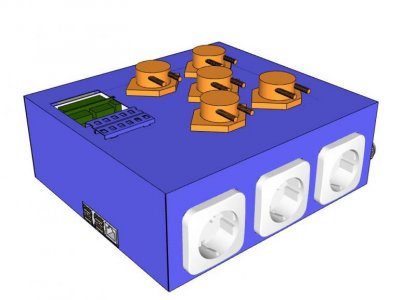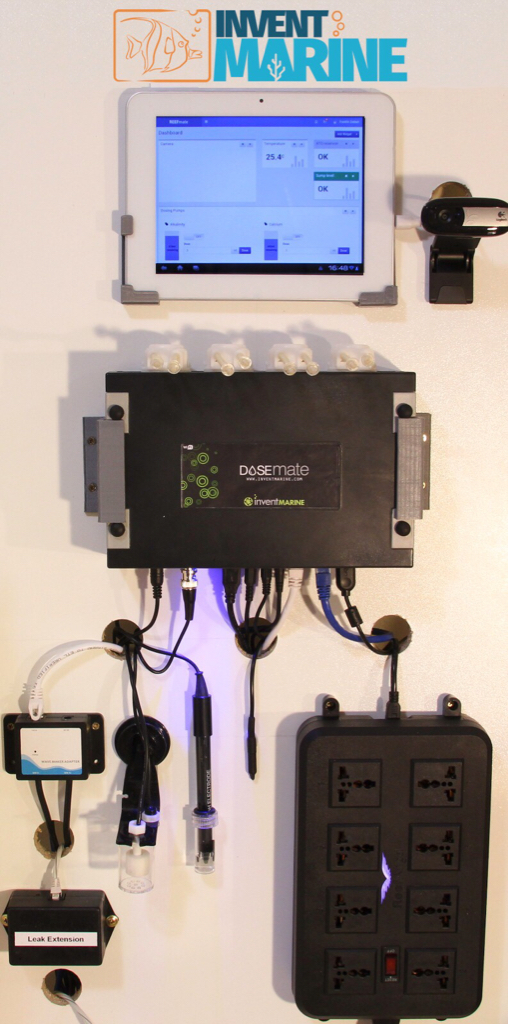Hello all,
if you are interested in a Kickstarter / Open Source projects as I describe it here please feel free to comment.
I just finished my a prototype of my aquarium controler (V2.0) and I would like to share that here.
In the past i made the experience that commercially available controllers are often very unflexible and you end up with different system that are not synchronised. Therefore I already developed 4 years ago my first raspberry pi based controler. Now I reworked it and made it much more robust.
It contains:
8 switchable sockets
5 dosing pumps
5 digital Inputs (I use them for several floating swichted and an ultrasonic level measurement)
5 digital logical outputs (I used them to control my LED lights via PWM)
2 12V, 1A Power Outputs (for pumps)
1-wire bus (for serval temperature sensors)
I was careful to design a robust mechanics. With my first versions I always had problems with cabeling and fixing the cables.
The main feature is that the whole control software is based on node-RED running on a Raspberry Pi. This is very flexible and very easy to use. Flexibility is very important because all like to have some unique DIY stuff in the tank. For visualization I use a webAPP. This can be put in the Raspberry, but I run it as a cloud service (IBM bluemix) and I use it everywhere in the world via a phone or tablet.
To me this concept is more modern and more flexible than other DIY platforms for aquarium controllers.
I am evaluating to do a Kickstarter project. The hardware needs some inests to produce it for someone else. The software on node-RED I would publish then as open source so that the community can work on it.
Let me know your thoughts.
Daniel
if you are interested in a Kickstarter / Open Source projects as I describe it here please feel free to comment.
I just finished my a prototype of my aquarium controler (V2.0) and I would like to share that here.
In the past i made the experience that commercially available controllers are often very unflexible and you end up with different system that are not synchronised. Therefore I already developed 4 years ago my first raspberry pi based controler. Now I reworked it and made it much more robust.
It contains:
8 switchable sockets
5 dosing pumps
5 digital Inputs (I use them for several floating swichted and an ultrasonic level measurement)
5 digital logical outputs (I used them to control my LED lights via PWM)
2 12V, 1A Power Outputs (for pumps)
1-wire bus (for serval temperature sensors)
I was careful to design a robust mechanics. With my first versions I always had problems with cabeling and fixing the cables.
The main feature is that the whole control software is based on node-RED running on a Raspberry Pi. This is very flexible and very easy to use. Flexibility is very important because all like to have some unique DIY stuff in the tank. For visualization I use a webAPP. This can be put in the Raspberry, but I run it as a cloud service (IBM bluemix) and I use it everywhere in the world via a phone or tablet.
To me this concept is more modern and more flexible than other DIY platforms for aquarium controllers.
I am evaluating to do a Kickstarter project. The hardware needs some inests to produce it for someone else. The software on node-RED I would publish then as open source so that the community can work on it.
Let me know your thoughts.
Daniel


